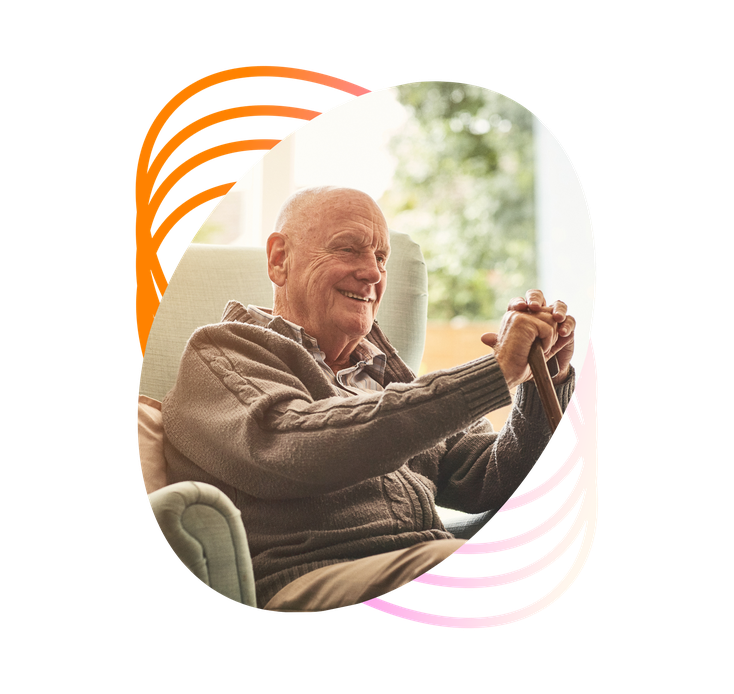End-of-Life Pathway –Support at Home
Dignity. Comfort. Compassion. At Home.
Caring for someone nearing the end of life is one of the most emotional journeys a family can take. Many older Australians express a simple wish: to spend their final days in the comfort of their own home, surrounded by the people and places they love.
The End-of-Life Pathway, part of the new Support at Home program, helps make this possible. It provides urgent access to additional aged care services in the home — easing the pressure on families and ensuring comfort, support, and dignity for you or your loved one.
At Lumia Care, we’re here to walk beside you. With empathy, experience, and gentle guidance, we help families create a calm, compassionate space at home.

What is the End-of-Life Pathway?
From 1 November 2025, the Australian Government’s Support at Home program includes a new End-of-Life Pathway — a short-term support package for older people with a prognosis of three months or less to live.
This pathway provides up to $25,000 in government-funded home care, delivered over 12 weeks (with the option to extend to 16 weeks if needed). The goal is to help you or your loved one stay at home, supported by services that bring peace, comfort, and ease.

What Support Can Be Provided?
Services under the End-of-Life Pathway are tailored to what you or your loved one need most, and may include:
✔ Personal care – including bathing, dressing, and hygiene support
✔ Respite care – giving family carers time to rest
✔ Domestic assistance – cleaning, laundry, shopping, and meals
✔ Transport and social support
✔ Assistive technology – such as mobility aids or safety equipment
✔ Clinical care – such as nursing, medication support, and symptom relief
Lumia Care works with families and care teams to adapt the care plan as needs change.

Will It Cost Anything?
There is no cost for clinical services, like nursing or medical care — these are fully government funded.
For other services (such as personal care or domestic help), a co-contribution may apply depending on financial circumstances. Our team will explain any costs clearly and help you or your loved one understand what to expect.
How Long Does the Pathway Last?
✔ The pathway runs for 12 weeks.
✔ If funds remain, it can continue for an extra 4 weeks (16 weeks total).
✔ After that, a new Support Plan Review can be requested to explore ongoing support options.

How to Access Support
Supporting a loved one at the end of life can feel overwhelming — but accessing care doesn’t have to be. We’re here to make it simple.
Contact Lumia Care - We will guide you through the application
The first step is having a doctor or nurse practitioner complete an End-of-Life Pathway form.
From there, we’ll help you submit the form to My Aged Care, request the right assessment, and get care started.
You don’t need to do it alone — our team can guide you step-by-step, or take care of the process for you.
A high-priority aged care assessment will be arranged
This confirms eligibility for the End-of-Life Pathway and ensures support begins as quickly as possible.
Services can begin within 24–48 hours
Once approved, care starts fast — giving your loved one support, dignity, and comfort at home when it matters most.
Already receiving services with Lumia Care? We can request a Support Plan Review and manage the transition into the End-of-Life Pathway for you.
Why Choose Lumia Care?
At Lumia Care, we understand how overwhelming and emotional this time can be — for you, your family, and your loved one. That’s why everything we do is built on kindness, clarity, and care.
Here’s how we support you:
Gentle, compassionate care
Our experienced team brings more than just clinical skill — they bring heart. We care for you or your loved one with quiet strength, attentiveness, and genuine respect.
Timely response when every moment matters
We know the urgency that comes with this stage of life. That’s why we can activate care quickly — often within 24–48 hours — to provide comfort without delay.
Support for the whole family
We coordinate care with healthcare professionals, palliative teams, and your family — so everyone feels supported, informed, and never alone.